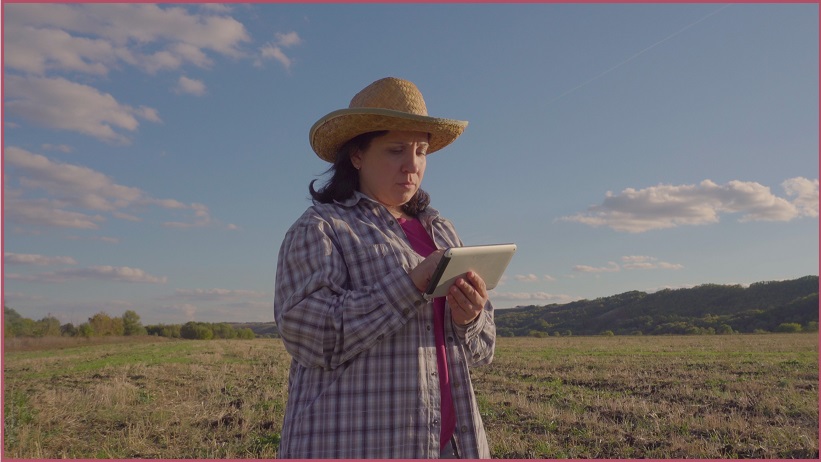Streaming movies and TV shows in 4K would be a thing of the past for regional national broadband network (NBN) users, if NBN Co progresses a proposed application ban designed to fight “unfair” network usage that has seen a few customers consuming so much bandwidth that network performance is being impacted.
Just 2.24 per cent of users on the company’s fixed-wireless services – used by just over 331,000 customers in regional and outer-metropolitan areas – consumed 12.3 per cent of available download bandwidth during August, while just 1.65 per cent were consuming 18.5 per cent of available upload capacity.
The figures emerged as the company approached its telecommunications customers and partners with a proposal to identify and throttle usage for the worst offenders.
The proposal, which was posted on its restricted-access Product Development Forum discussion board would see the network builder moving to limit the bandwidth available for activities such as peer-to-peer file sharing, software and game patches, VPN traffic and 4K ultra high-definition video.
NBN Co has “observed a number of examples of single users consuming the majority of capacity resources in their given cell through consistent and prolonged high usage,” the proposal said.
Yet identified problem users likely include businesses conducting quite ordinary tasks, such as monitoring security cameras or backing up their data to a remote site or cloud service.
Resource redistribution
Efforts to improve the overall performance of fixed-wireless NBN services will come as a welcome relief for users in rural areas, where an uncertain strategy for 5G rollouts has offered little promise to improve services that have been identified as a blocker for business growth.
Surveys of regional and rural users have identified ongoing congestion issues over fixed-wireless and satellite services, with small-business group Regional Arts NSW (RANSW) and rural Victoria’s Strathbogie Shire expressing frustration.
Some 61 per cent of surveyed Strathbogie businesses said they were experiencing daily dropouts and 90 per cent reported slow speeds, with the submission calling the search for adequate bandwidth “a quixotic quest in many Strathbogie Shire locations”.
The proposal comes on the back of ongoing NBN Co work to improve the uplink speeds available to fixed-wireless customers, who have reported network congestion that eased immediately as new fixed wireless cells were installed in their area.
In tests, NBN Co reported, diverting identified high-bandwidth users to a different wireless cell had boosted performance for the other regular users on that cell.
Application-level blocking would see 4K streaming limited to 10 to 14Mbps, NBN Co’s proposal said, with game downloads limited to 5Mbps, software updates limited to 3Mbps, and commercial VPN services and file sharing throttled to 1Mbps or less.
Paired with targeted infrastructure expansion, the measures could well improve the overall experience for users – but at the cost of artificially limiting activities such as video streaming, which naturally surges during peak times when families sit down to watch their favourite shows and movies.
Such 4K streams “may otherwise be moderated to HD or SD quality”, NBN Co’s proposal reads, echoing a strategy that was used by streaming companies in April – and most recently lifted in September – to cope with the explosion in demand as COVID-19 lockdowns forced citizens onto their couches.
Back to the future
The proposal caused debate on telecommunications industry forum Whirlpool, with one user welcoming it as a sign that “delusional” unlimited broadband plans are unworkable.
The industry should “go back to multiple plans with hard quotas,” the user said, noting that such a change “will sort the leeches out”.
Yet others were unimpressed, with one participant noting that “we can’t expect society to have homogenised data use” and that having a few high-bandwidth users “sounds like a perfectly normal and to be expected distribution”.
“There will also be a lot who use very little” bandwidth, the user said, adding that “people paying for a service are not leeches”.
The proposal is a throwback to widespread bandwidth throttling practices, which have been adopted on and off by Internet service providers seeking to balance attractive broadband usage offerings with limitations on the amount of backhaul broadband required to provide those services.
Bandwidth throttling became particularly important with the surge in popularity of bandwidth-hungry BitTorrent services, which have been widely used for distribution of pirated copies of movies, TV shows, and software.
Yet the practice has caused controversy amongst those advocates for ‘net neutrality’, the idea that Internet providers should treat all kinds of traffic the same.
NBN Co’s new proposal may raise similar concerns, but CEO Stephen Rue recently said the company remains committed to exploring options to help bolster regional services.
Better broadband “is going to have a big impact on regional Australia to ensure that it remains vibrant and very relevant, and indeed I think we’ll see people moving more to regional Australia to live,” Rue told a recent Committee for the Economic Development of Australia webinar.
“These investments are crucial to ensure that we continue to meet the needs of consumers going forward as those digital changes continue to evolve.”










